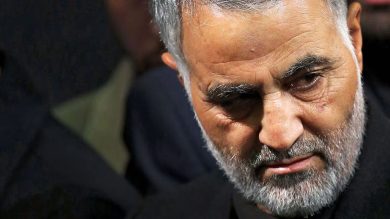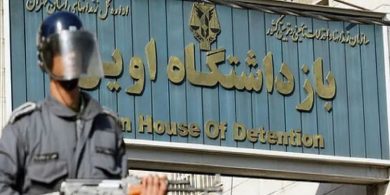The Islamic Revolutionary Guard Corps (IRGC) has long been a central force in advancing Iran’s political, ideological, and military ambitions. Over the past decade, the IRGC has expanded its operations into cyberspace, recognizing the strategic value of cyber warfare as a tool to project power, counter adversaries, and destabilize global systems. By leveraging cyberattacks, disinformation campaigns, and surveillance technologies, the IRGC has opened a new front in its operations, targeting governments, private institutions, and individuals worldwide.
This article explores the IRGC’s involvement in cyber warfare, its methods, and its implications for global security and stability.
The Rise of IRGC Cyber Operations
Iran’s interest in cyber warfare gained momentum following the 2010 Stuxnet attack, which targeted Iran’s nuclear facilities. This incident demonstrated the vulnerabilities of critical infrastructure to cyberattacks and underscored the need for a robust cyber capability to defend Iran’s interests and retaliate against perceived threats.
The IRGC, tasked with safeguarding the Islamic Republic and advancing its geopolitical objectives, emerged as a leader in Iran’s cyber warfare strategy. By establishing dedicated cyber units and recruiting skilled operatives, the IRGC has transformed into a formidable cyber actor.
Key Goals of IRGC Cyber Warfare
1. Defending Iran’s Regime: Protecting the government from domestic and international threats, particularly in response to sanctions, protests, and espionage.
2. Destabilizing Adversaries: Targeting rivals like the United States, Israel, and Gulf States through cyberattacks on critical infrastructure, financial systems, and public services.
3. Advancing Iran’s Regional Agenda: Supporting Iran’s proxies and allies by weakening opponents and spreading disinformation to manipulate public opinion.
4. Economic Espionage: Stealing intellectual property, trade secrets, and other valuable information to bolster Iran’s economy and military capabilities.
The IRGC’s Cyber Arsenal
The IRGC employs a wide range of tools and techniques in its cyber operations, enabling it to conduct both offensive and defensive campaigns.
1. Cyberattacks on Critical Infrastructure
The IRGC has targeted critical infrastructure in countries it views as adversaries. These attacks aim to disrupt essential services, sow chaos, and demonstrate Iran’s capabilities. Notable examples include:
• 2012 Saudi Aramco Cyberattack: The Shamoon virus, attributed to IRGC-affiliated hackers, destroyed 35,000 computers at Saudi Aramco, crippling operations at the world’s largest oil company.
• 2021 U.S. Water Facility Attack: IRGC-linked actors attempted to hack a water treatment plant in the United States, highlighting the vulnerability of public utilities to cyberattacks.
2. Disinformation Campaigns
The IRGC runs extensive disinformation campaigns to manipulate public opinion and destabilize governments. These campaigns often involve spreading false narratives, amplifying divisive content, and impersonating legitimate news sources. Targets have included elections in the United States and political movements in the Middle East.
3. Surveillance and Domestic Control
Domestically, the IRGC uses cyber tools to monitor activists, journalists, and dissidents. By hacking social media accounts, intercepting communications, and deploying spyware, the IRGC suppresses opposition and enforces its control over Iranian society.
4. Ransomware and Financial Theft
The IRGC has increasingly turned to ransomware attacks and financial theft to generate revenue. By targeting banks, cryptocurrency exchanges, and other financial institutions, the IRGC circumvents sanctions and funds its operations.
5. Proxy Cyber Groups
To obscure its involvement, the IRGC often operates through proxy groups, such as APT33 (Elfin), APT34 (OilRig), and APT35 (Charming Kitten). These groups conduct cyberattacks on behalf of the IRGC while maintaining plausible deniability
Case Studies of IRGC Cyber Operations
1. Operation Ababil (2012–2013)
In retaliation for U.S. sanctions, the IRGC launched a series of Distributed Denial-of-Service (DDoS) attacks on major American banks, including JPMorgan Chase and Bank of America. These attacks disrupted online banking services and demonstrated the IRGC’s ability to target financial institutions.
2. U.S. Presidential Elections (2020)
In the lead-up to the 2020 U.S. elections, IRGC-linked hackers sent threatening emails to voters, posing as members of the Proud Boys. This disinformation campaign aimed to sow confusion and undermine trust in the electoral process.
3. Israeli Water Infrastructure Attack (2020)
The IRGC allegedly attempted to hack Israel’s water infrastructure, seeking to disrupt water supplies. This attack, if successful, could have had severe humanitarian and environmental consequences.
4. Cyber Espionage Against Europe
IRGC-affiliated groups have targeted European universities, technology companies, and research institutions to steal intellectual property related to advanced technology and military applications.
Global Implications of IRGC Cyber Warfare
The IRGC’s cyber activities have far-reaching consequences for international security and stability:
1. Escalation of Cyber Conflicts
The IRGC’s cyber operations contribute to an escalating arms race in cyberspace, prompting adversaries to develop more sophisticated offensive and defensive capabilities.
2. Threats to Critical Infrastructure
Attacks on infrastructure, such as power grids, water systems, and healthcare networks, pose significant risks to public safety and economic stability.
3. Undermining Democratic Institutions
Disinformation campaigns and election interference erode trust in democratic processes and institutions, destabilizing societies and fueling polarization.
4. Financial and Economic Disruption
The IRGC’s ransomware attacks and intellectual property theft undermine global financial systems and disrupt legitimate business operations.
Countering the IRGC’s Cyber Threat
Governments and organizations worldwide have taken steps to counter the IRGC’s cyber activities, employing a combination of sanctions, defensive measures, and international cooperation.
1. Sanctions
The United States and its allies have imposed sanctions on IRGC-linked individuals and entities involved in cyberattacks. These sanctions target the financial and logistical networks supporting the IRGC’s cyber operations.
2. Cybersecurity Enhancements
Public and private institutions are investing in advanced cybersecurity technologies to detect and prevent cyberattacks. Training and awareness campaigns are also critical in mitigating the impact of phishing and ransomware attacks.
3. International Collaboration
Countries are sharing intelligence and coordinating responses to IRGC cyber threats through initiatives like the Global Forum on Cyber Expertise and NATO’s Cooperative Cyber Defence Centre of Excellence.
4. Offensive Cyber Operations
Some nations have adopted proactive cyber strategies, launching counterattacks against IRGC-affiliated networks to deter future aggression.
Challenges in Addressing the IRGC’s Cyber Threat
While efforts to counter the IRGC’s cyber activities have achieved some success, significant challenges remain:
• Attribution: Identifying IRGC involvement in cyberattacks is difficult, given its use of proxy groups and obfuscation tactics.
• Evasion of Sanctions: The IRGC continues to find ways to circumvent sanctions, including using cryptocurrencies and dark web marketplaces.
• Global Coordination: Differing national priorities and capabilities hinder a unified international response to IRGC cyber operations.
The Future of IRGC Cyber Warfare
As technology evolves, the IRGC is likely to expand its cyber capabilities, focusing on artificial intelligence, quantum computing, and advanced surveillance tools. This progression will further enhance its ability to target adversaries and suppress dissent
Conclusion
The IRGC’s cyber warfare operations represent a significant and growing threat to global security. By targeting critical infrastructure, spreading disinformation, and conducting financial crimes, the IRGC leverages cyberspace to destabilize adversaries and advance Iran’s strategic objectives. Addressing this challenge requires sustained international cooperation, robust cybersecurity measures, and accountability for IRGC-affiliated actors. The fight against the IRGC’s cyber activities is not just a battle for digital security but a broader struggle for stability and sovereignty in an interconnected world.
Join Our Newsletter!
Stay informed with the latest updates, news, and ways to take action in the fight for justice and global security. Sign up now to get updates delivered straight to your inbox!





